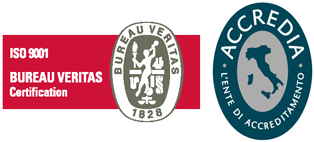Overall Aims and Objectives
Fulbright College is experiencing a great deal of growth in the number of students whose first language is not English and who need language assistance in order to access and benefit from the total curriculum.
Although the largest numbers of limited English proficient students are at the elementary level, increasing numbers of new arrivals are entering secondary grades. Students progress in English at different rates depending on a number of variables including educational background, native language spoken, literacy skills in their native language, and previous contact with English.
In any case, Fulbright College has put in place a variety of programs, from beginners to advanced levels, to assist students in their quest to overcome the difficulties they encounter in becoming proficient in English. Our programs encompass developments in all aspects of English language: Speaking, Listening, Reading and Writing.
We also ensure students are appropriately certified in line with the Common European Framework of Reference for Languages as shown below:
COMMON REFERENCE LEVELS:
The Common European Framework divides learners into three broad divisions that can be divided into six levels; for each level, it describes what a learner is supposed to be able to do in reading, listening, speaking and writing. These levels are:
| Level group |
Level group name |
Level |
Level name |
Description |
| A |
Basic user |
A1 |
Breakthrough or beginner |
- Can understand and use familiar everyday expressions and very basic phrases aimed at the satisfaction of needs of a concrete type.
- Can introduce him/herself and others and can ask and answer questions about personal details such as where he/she lives, people he/she knows and things he/she has.
- Can interact in a simple way provided the other person talks slowly and clearly and is prepared to help.
|
| A2 |
Way stage or elementary |
- Can understand sentences and frequently used expressions related to areas of most immediate relevance (e.g. very basic personal and family information, shopping, local geography, employment).
- Can communicate in simple and routine tasks requiring a simple and direct exchange of information on familiar and routine matters.
- Can describe in simple terms aspects of his/her background, immediate environment and matters in areas of immediate need.
|
| B |
Independent user |
B1 |
Threshold or intermediate |
- Can understand the main points of clear standard input on familiar matters regularly encountered in work, school, leisure, etc.
- Can deal with most situations likely to arise while travelling in an area where the language is spoken.
- Can produce simple connected text on topics that are familiar or of personal interest.
- Can describe experiences and events, dreams, hopes and ambitions and briefly give reasons and explanations for opinions and plans.
|
| B2 |
Vantage or upper intermediate |
- Can understand the main ideas of complex text on both concrete and abstract topics, including technical discussions in his/her field of specialization.
- Can interact with a degree of fluency and spontaneity that makes regular interaction with native speakers quite possible without strain for either party.
- Can produce clear, detailed text on a wide range of subjects and explain a viewpoint on a topical issue giving the advantages and disadvantages of various options.
|
| C |
Proficient user |
C1 |
Effective operational proficiency or advanced |
- Can understand a wide range of demanding, longer clauses, and recognize implicit meaning.
- Can express ideas fluently and spontaneously without much obvious searching for expressions.
- Can use language flexibly and effectively for social, academic and professional purposes.
- Can produce clear, well-structured, detailed text on complex subjects, showing controlled use of organizational patterns, connectors and cohesive devices.
|
| C2 |
Mastery or proficiency |
- Can understand with ease virtually everything heard or read.
- Can summarize information from different spoken and written sources, reconstructing arguments and accounts in a coherent presentation.
- Can express him/herself spontaneously, very fluently and precisely, differentiating finer shades of meaning even in the most complex situations.
|
At Fulbright, we also lay emphasis on writing for students whose first language is not English as we believe that writing is an extension of listening and speaking. Therefore, these students must be provided opportunities to build, extend, and refine oral language in order to improve written output. Since writing involves some risk-taking, it is important for students to be comfortable taking risks. They need to know that their efforts are appreciated and that the message they are trying to convey is valued over the form.


